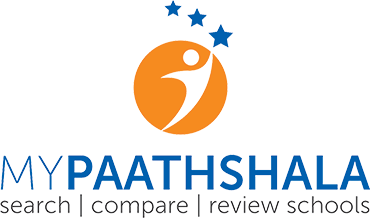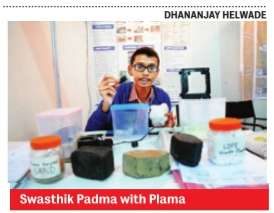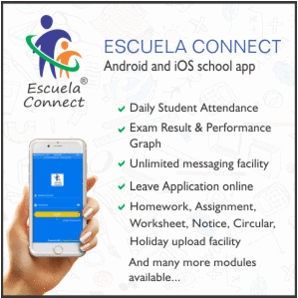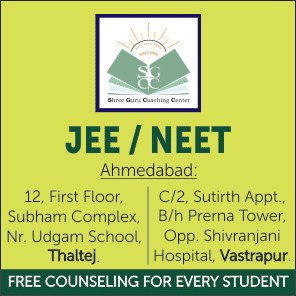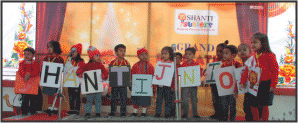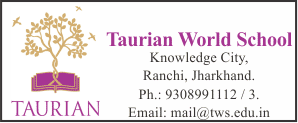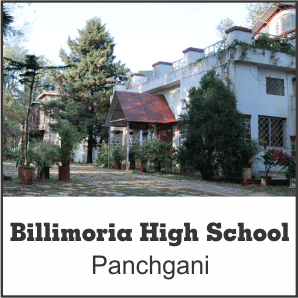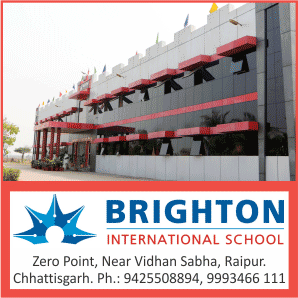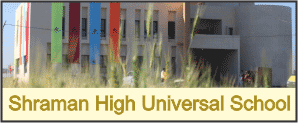Pune Mirror samples five of the 100 projects displayed by students from all over the country at the national science fair in IISER
Innovation, collaboration of concepts and sharing of ideas basked under one roof on Thursday, as the Initiative for Research and Innovation in Science (IRIS) National Science Fair got young innovators to display their projects at the Indian Institute of Science Research and Education (IISER). The exhibition that commenced on December 21 (and will conclude on Friday), has 100 students displaying innovations, with 15 being shortlisted to represent India at the Intel International Science and Engineering Fair (IISEF) in the US. Upon visiting the exhibition, Pune Mirror came across some interesting project with promising utility.
Young train of thought on eco-friendly materials
A Class X student from Vivekananda English Medium School in Karnataka, Swasthik Padma, has made a veritable effort to find a solution to the plastic problem. His project, Plama is aimed at developing ecofriendly material from waste plastic and sand. The task involves shredding of plastic into small pieces, while mud and other waste materials are eliminated. He said, “Low density polythene (LDPE) amounting to 60 per cent was mixed with 40 per cent of sand and the mixture was heated to 120 degree Celsius, which was then converted to semi-solid mass. It was then transferred into moulds and allowed to cool for two hours following which, it was coated with 1 mm cement grout to reduce its flammability.“
He informed that the challenge was taken with the help green chimney. The outcome material can be then used as building material, interlock, construction of barriers, roof tiles, electric poles, doors, dams, vehicle bodies and so on.
Smartphone solution to lower back pain
Kunj Dedhia, a Class XII student of Dhirubai Ambani International School in Mumbai developed Cyclos, an app to help cyclists get the perfect posture to keep lower back pain at the bay. “The cyclist has to wear the smartphone on hisher arm with the help of some upholstery. The app will alert the rider by vibrating when he she moves out of correct posture for minimising injury. The uneven terrain and natural inclination is also taken care of so that the errors were minimised. Also, when a person is comfortable with a wrong posture and the phone vibrates, he she has the option of pressing the dismiss button and continue,“ informed Dedhia.
Long-lasting promise of waterproof slabs
Class VIII students from Prarambhika School in Balua village at Bihar, Chandra Mohan and Abhishek Kumar, have managed to make waterproof slabs for houses as well as roads. Primarily light in weight, these slabs would prove to be a good choice for buildings in earthquake-prone areas. “Coconut fibres, calcium oxide powder and jaggery were mixed to build the slab. The mixture was dried in sunlight for 72 hours. It was also tried and tested at different temperatures,“ Mohan said.
Chemical detectives on the prowl
Ingesting harmful insecticides or pesticides sprayed on vegetables or fruits have adverse effect on the health. A duo from Nagpur, two students of Class XI from Taywade College and Ambedkar College, have come up with an ingenious solution to detect the amount of chemical left on the eatables.
“It involves a strip with six enzyme dots. The fruit or vegetable has to be washed with the buffer solution and the strip has to be placed over the sample. A staining solution is then applied over it. Different insecticides or pesticides will have different dot patterns on the strip, which are indicated by us. If all the dots are blue, then there is no traces of chemicals,“ informed Suhani Jain who was present at the fair with her project partner Divya Kranti.
Devising way out of tough discourse
Augmentative and alternative communication (AAC) is a cluster of methods used to supplement or replace speech or writing for people who suffer from speaking and writing impairments. The ACC devices, which are often bulky, may have found an alternative in Manan Rai’s TACo: Think and Converse project. The Class XII students from Amity International School in New Delhi, said, “Existing ACC devices ones are bulky. TACo operates accurately and can decipher 26 English alphabets and six common words.“




Source – Pune Mirror – 23rd December 2016
